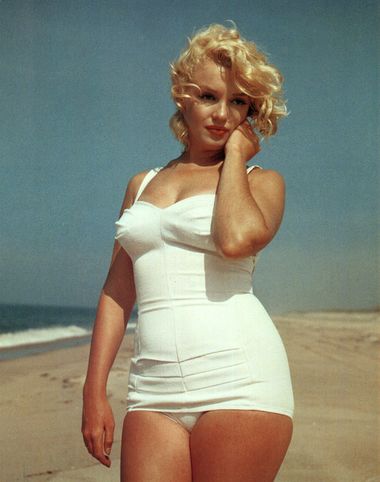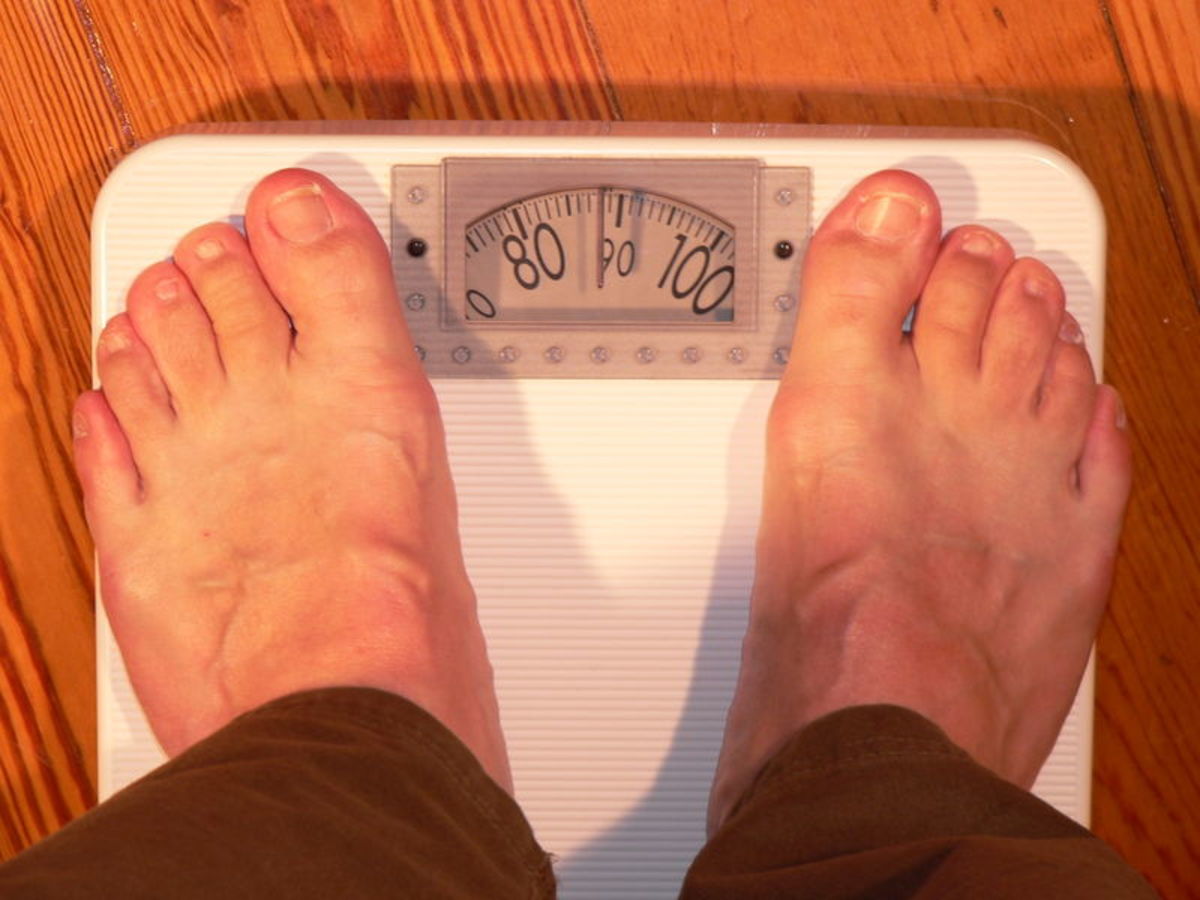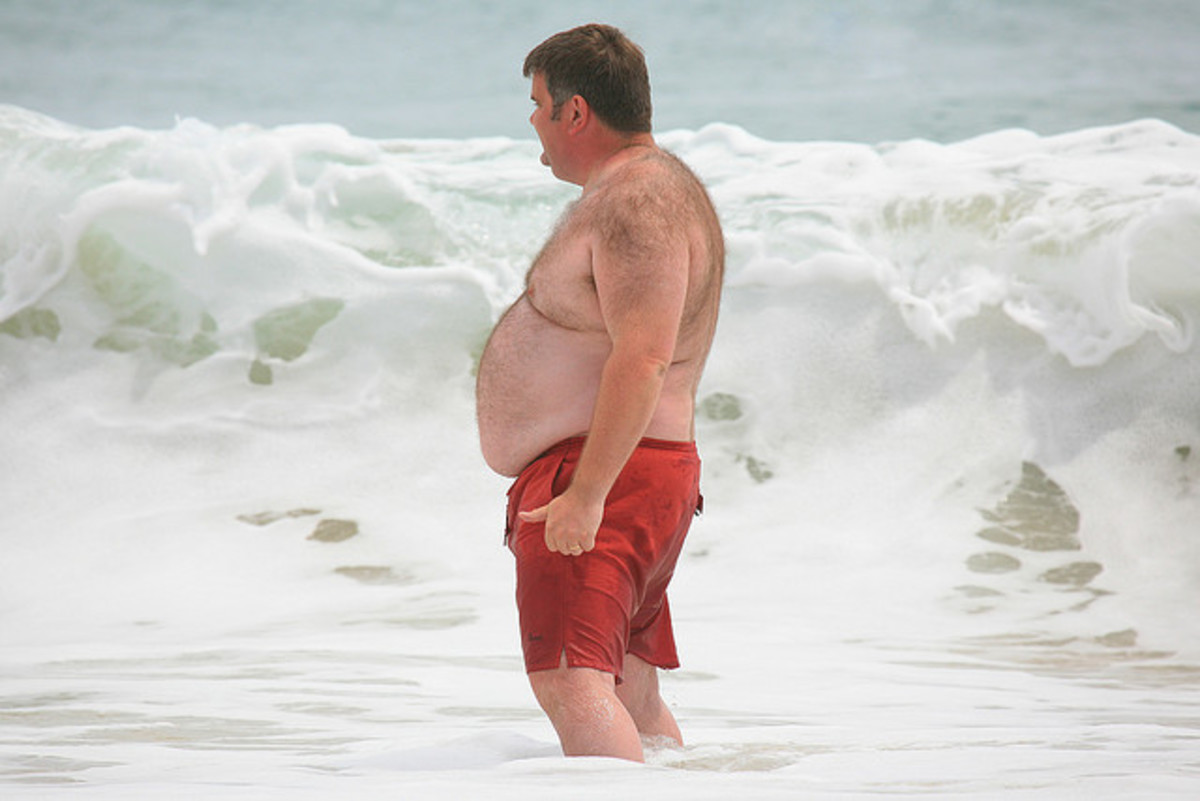Weight Loss: Luxury or Necessity?
You can't turn on the television or radio nowadays without hearing some new theory about good or bad things to eat. Even worse, advice differs about whether dieting is the best way to lose weight.
Then there are the products: pills, diet biscuits, drinks, and low calorie meals. And I haven't even begun to mention exercise machines of various kinds, weight training, yoga, and so on. Then we get on to foundation garments such as slimming knickers. Then there is the final solution: surgery aimed at improving our appearance or, more drastically, at curbing our appetites.
How fat is too fat? How big do you have to be before you are morbidly obese? How much influence do the slimming and fashion industries have on our need to shed the pounds? Above all, how desperate do we need to be before we actually begin to shed those pounds?
BMI
Underweight <18.5
Ideal 18.5 - 25
Overweight 25 - 30
Obese 30 - 40
Very Obese >40


BMI and Obesity
The Body Mass Index (BMI) is a measurement that tells us how fat we really are in proportion to our height. The figure is calculated by dividing the weight in kilograms by height in metres.
This might sound very clear-cut, but there are anomalies. For instance, it is a much quoted fact that, according to BMI, Brad Pitt is overweight and George Clooney obese - which goes to prove once again that there are lies, damned lies, and statistics!
Adverse health conditions associated with obesity include gall bladder disease, hypertension, coronary artery disease, osteo-arthritis, and colon cancer.
There are also the obvious psychological issues of depression and lack of confidence, and in pregnancy there are risks for the child. Anyone who is morbidly obese would definitely be well advised to lose weight.
Obesity is on the increase among adults and also, alarmingly, among children. It has been estimated that about 27% of British children are overweight. Many of these have parents who are overweight, which could indicate hereditary factors, but could also point to lifestyle choices.
Exercise
Our lifestyle today is more sedentary than it has ever been. More people have cars, and they are much more likely to drive to the supermarket to stock up with food and other necessities than walk to the corner shop or neighbourhood store.
Advances in technology have led to much less physical activity in the world of work. A very simple example is typing. In the old days, I would have been using much more energy typing this on my old typewriter than today using my PC. Thanks to all the labour saving devices, much less energy is expended on household chores than in the past. Mind you, I wouldn't change places with the 1930s housewife for anything!
There are also more sinister factors at work. Children do not walk to school as often as they used to, or play outdoors, because of fears for their safety. Now, I don't know whether our kids are really more at risk than they used to be - but the media would certainly have us believe they are.
Then, there are computer games and games consoles that keep us all indoors, kids and adults alike. True, gym membership is probably considerably up on what it was, but one wonders about the value of intense bouts of occasional activity when contrasted with more frequent, less strenuous exercise.


Food Disorders and the Fashion Industry
However, the other side of the coin is that eating disorders, too, are on the increase. Wherever you go you see advertisements for slimming aids and diet clubs - it's an industry that is growing much faster than its punters are losing weight!
Then, there's the fashion industry, which seems to be declaring that you're dangerously plump at British dress size 12 (American 10) and a blimp at size 14(12), when the average dress size for British women today is 16(14).
This trend is borne out by the relative sizes of film stars and fashion icons. In the 1950s and early 1960s, Marilyn Monroe was the epitome of glamour, whereas she would never escape bitcheries from magazines such as Heat today. Even by the end of the 1960s, the beautiful but minute Twiggy was pictured everywhere, and the fashion for painfully thin models has continued.
Children and teenagers, boys as well as girls, are also bitten by the slimming bug. Obviously, it is not ideal for a child or adolescent to be obese. But neither is it ideal for them to be counting the calories in every mouthful and slimming themselves down to skeletal proportions, or deliberately making themselves sick after they have eaten to avoid excess calories. True, obesity kills - but so does anorexia nervosa!
Useful Links
- Overweight who diet risk dying earlier, says study
Guardian report of a study carried out in Finland 1n 2005 - Beryl Cook
A link to the work of Beryl Cook, a British artist, unfortunately recently deceased, who delighted in painting larger-than-life characters.
Is it Dangerous to be Overweight?
So, should everyone who is a few pounds overweight start dieting? I feel that every case is different. According to some studies, those who are slightly overweight are likely to be healthier than those who are underweight. There was even a study in Finland which seemed to indicate that large people who sought to diet over a period of years and actually lost weight were likely to die earlier than those who stayed at the same weight. No reasons could be given for this, but one possibility put forward was than ‘lean' organs also lost weight in the process of slimming.

A Personal Case Study
Three years ago, just before I had an operation to replace my knee joint, I weighed in at 203lb. Since I am just under 5ft 3in in height, I was well into the obesity scale, although not morbidly obese.
Nowadays I weight around 154lb.
Now, this is not an ideal weight for my height, as my BMI hovers around 27, but I feel much better in myself and am much more mobile. I have a replacement hip joint as well as the knee joint, so cannot do much exercise. I am therefore permanently on a 1200-1500 calorie diet just to stay at the same weight.
I enjoy my diet and am very happy to go and buy clothes in ‘normal' shops. I seem to have stuck at this weight and am unwilling to eat less than I do now. However, I'm sure many people would disagree with me - and some, no doubt, would not have dieted in the first place!
I lost weight by joining an on-line slimming club This approach suits me because, although I don't have to go and weigh myself in front of everyone and listen to an embarrassing pep talk every week, I do have the discipline of weighing myself weekly in order to get my meal plan. And if I were to lie, it would only be myself that I was cheating! I also have access to a great deal of on-line advice, and also on-line support groups.
Other people might find that they enjoy the sociability of attending a slimming club, and still others might find that they have the strength of will and purpose to do it all on their own. Still others may prefer to change their food intake very little but lose weight through exercise. It is very much up to the individual.
And then there are those who may decided not to bother! In this they would probably have had support from Beryl Cook, a popular British artist, unfortunately recently deceased, who celebrated in her paintings the fun and joie de vivre of characters who were larger than life in every sense!

Please note that this is an impartial article - I'm not here to sell products or services!
Conclusions
What conclusions do we draw from all this? Well, I feel that all we can say is that there is no hard and fast rule. The advantages of slimming are obvious: better health and mobility, an enhanced state of well-being - and it's easier and cheaper to buy clothes!
The disadvantages are that we might be being manipulated by big businesses such as the fashion industry and we might also fall victim to conditions such as bulimia or anorexia nervosa. In some cases, such as where there is a known history of heart disease or joint instability in the family, the need to be careful in diet is obvious.
However, eating is a great social occasion as well as an imperative for living - so don't ever let slimming take over your whole life!







